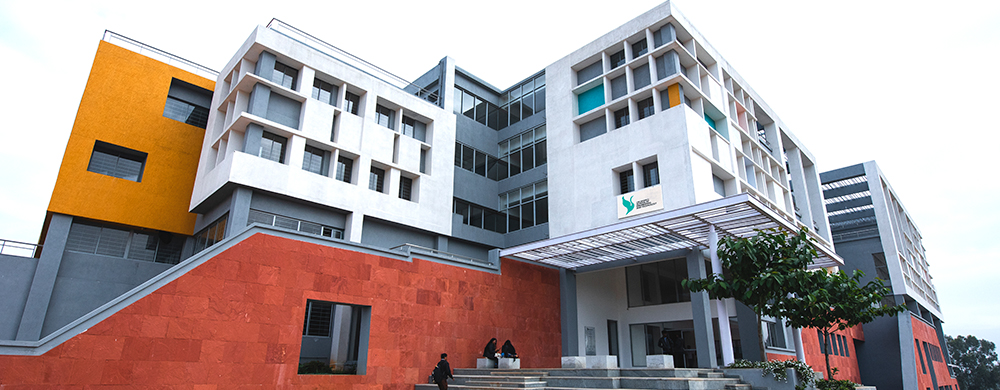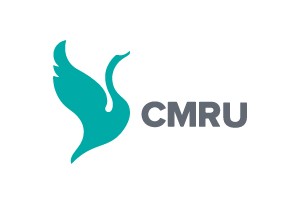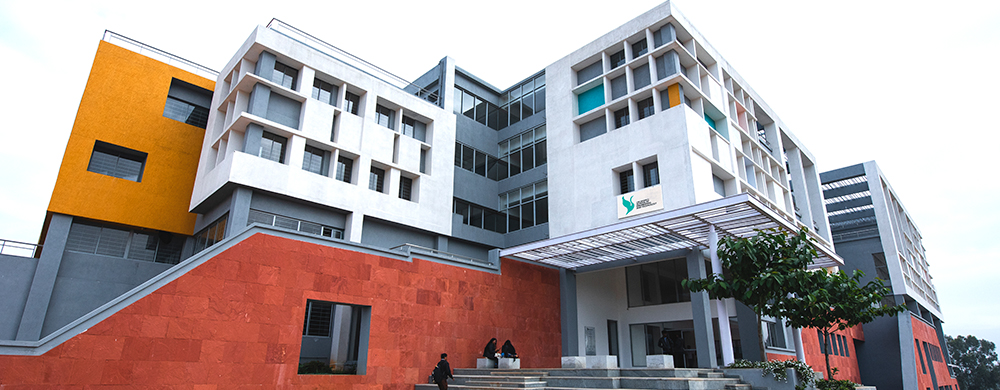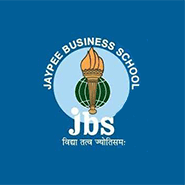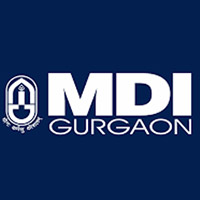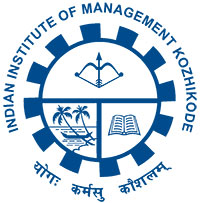Most MBA colleges in Bangalore focus on developing managerial, entrepreneurial, and leadership skills for the students through academic excellence. As one of the top universities in Karnataka, CMR University aims to prepare the students to practise their skills through real-life scenarios and university aimes to build empathetic leaders with relevant technical skills.
CMRU’s School of Management provides the best MBA course in Bangalore supported by the world-class faculty team, advanced teaching pedagogies, and 100 % placement assistance.The university provides dual specialisations with the current trending subjects like digital marketing and business analytics. The college has Centres of Excellence in Business Analytics, HR, Logistics and Supply Chain Management etc. to help students get the best out of their academic and real-life knowledge. Come, be a part of one of the best executive MBA colleges in Bangalore and experience your leadership transformation.
Programme Structure
The computer science syllabus for each semester is as given below:
The computer science program at CMR University is ranked highly and is often compared to the top computer science engineering colleges in Karnataka.
SEMESTER I
SEMESTER II
SEMESTER III
SEMESTER IV
DISCIPLINE SPECIFIC ELECTIVE GROUPS
GENERAL ELECTIVES
Programme Assessment
Choice-Based Credit System (CBCS): The university follows CBCS, which allows students to choose courses and earn credits based on their performance
Grades and GPA: Students are awarded grades for each course in a semester, and their Semester Grade Point Average (SGPA) is calculated to measure their academic performance. Cumulative Grade Point Average (CGPA) is used to evaluate the overall performance of a student across all semesters.
Prescribed Curriculum: Each program has a prescribed curriculum or Scheme of Teaching and Evaluation, which includes the required courses, laboratories, and other degree requirements. It also incorporates SWAYAM and Massive Open Online Courses (MOOCs) offered by reputed institutions.
Auditing Courses: Students have the option to audit courses, which allows them to gain additional exposure without the pressure of obtaining a grade. This can give them an advantage in placements.
Evaluation System: The evaluation of students is comprehensive and continuous throughout the semester. It consists of Continuous Internal Evaluation (CIE) and Semester End Examination (SEE). CIE and SEE carry equal weightage of 50% each, resulting in a total evaluation of 100 marks for each course, regardless of its credit value.
Assessment Methods: Before each semester, faculty members may choose assessment methods such as assignments, seminars, quizzes, group discussions, case studies, practical activities, class presentations, industry reports, etc., with suitable weightage for each.
Semester End Examination: A Semester End Examination is conducted for all registered courses at the end of each semester. However, some courses that already have Continuous Internal Evaluation may not require a SEE. Makeup Examinations: Students who fail the Semester End Examination in one or more courses are eligible for makeup examinations, which provide an opportunity to retake the failed exams and improve their grades.
Programme Outcome
The student will be able to demonstrate analytical skills applying business analysis, and data management and diagnostic problem-solving skills in order to support management decision-making.
Inculcate an ability to integrate business knowledge and management techniques to aid planning and control in a changing business environment.
Enrich knowledge and skill and develop the right attitude and required values to be a management professional to drive global change.
Display leadership competencies in implementing, coordinating and inspiring subordinates to manage change.
Programme Structure
The computer science syllabus for each semester is as given below:
The computer science program at CMR University is ranked highly and is often compared to the top computer science engineering colleges in Karnataka.
SEMESTER I
SEMESTER II
SEMESTER III
SEMESTER IV
DISCIPLINE SPECIFIC ELECTIVE GROUPS
GENERAL ELECTIVES
Programme Assessment
Choice-Based Credit System (CBCS): The university follows CBCS, which allows students to choose courses and earn credits based on their performance
Grades and GPA: Students are awarded grades for each course in a semester, and their Semester Grade Point Average (SGPA) is calculated to measure their academic performance. Cumulative Grade Point Average (CGPA) is used to evaluate the overall performance of a student across all semesters.
Prescribed Curriculum: Each program has a prescribed curriculum or Scheme of Teaching and Evaluation, which includes the required courses, laboratories, and other degree requirements. It also incorporates SWAYAM and Massive Open Online Courses (MOOCs) offered by reputed institutions.
Auditing Courses: Students have the option to audit courses, which allows them to gain additional exposure without the pressure of obtaining a grade. This can give them an advantage in placements.
Evaluation System: The evaluation of students is comprehensive and continuous throughout the semester. It consists of Continuous Internal Evaluation (CIE) and Semester End Examination (SEE). CIE and SEE carry equal weightage of 50% each, resulting in a total evaluation of 100 marks for each course, regardless of its credit value.
Assessment Methods: Before each semester, faculty members may choose assessment methods such as assignments, seminars, quizzes, group discussions, case studies, practical activities, class presentations, industry reports, etc., with suitable weightage for each.
Semester End Examination: A Semester End Examination is conducted for all registered courses at the end of each semester. However, some courses that already have Continuous Internal Evaluation may not require a SEE. Makeup Examinations: Students who fail the Semester End Examination in one or more courses are eligible for makeup examinations, which provide an opportunity to retake the failed exams and improve their grades.
Programme Outcome
The student will be able to demonstrate analytical skills applying business analysis, and data management and diagnostic problem-solving skills in order to support management decision-making.
Inculcate an ability to integrate business knowledge and management techniques to aid planning and control in a changing business environment.
Enrich knowledge and skill and develop the right attitude and required values to be a management professional to drive global change.
Display leadership competencies in implementing, coordinating and inspiring subordinates to manage change.
